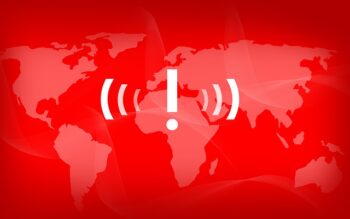 Johannesburg (dpa) – After days of violent protests and looting in South Africa following the imprisonment of former president Jacob Zuma, military patrols began in the hardest-hit areas on Tuesday.
Johannesburg (dpa) – After days of violent protests and looting in South Africa following the imprisonment of former president Jacob Zuma, military patrols began in the hardest-hit areas on Tuesday.
There have been at least 10 deaths and a number of injuries, including four police officers. Nearly 500 arrests have been made so far, police said.
What began at the weekend as protests against Zuma’s 15-month jail term for contempt of court has rapidly devolved, in some instances, into large-scale, bloody riots.
The unrest has disrupted supply chains, putting South Africa at risk of food and medicine shortages within weeks, President Cyril Ramaphosa said on Monday night, warning of life-threatening consequences especially during the Covid-19 pandemic.
The province of Gauteng, which includes the cities of Pretoria and Johannesburg, and Zuma’s eastern home province of KwaZulu-Natal, have been particularly impacted and will now see the military assisting local law enforcement agencies.
«The duration and number of deploying soldiers will be determined based on the assessment of the situation on the ground by the relevant law enforcement agencies,» the Defence Department said.
In the port city of Durban, the local government said the protests could cause problems with municipal utility services such as the water supply, as urgently needed repairs could not be carried out.
Zuma was sentenced last week to 15 months in prison for contempt of court, which he began serving late Wednesday. He faces a commission of inquiry into various corruption charges during his time in office, from 2009 to 2018, but had failed to comply with a court summons.
The rioters have blockaded roads, burned tyres, set fire to trucks, ransacked buildings and plundered shops. Video footage from a shopping mall in Durban showed people freely hauling away looted goods.
Witnesses told of people driving up to stores in cars and walking away with refrigerators, beds, clothes, shoes and even furniture. The outnumbered police officers would frequently watch powerlessly from the sidelines, and sometimes even be assaulted by rock throwers.
The tumult has brought buses, trains and traffic to a standstill, disrupting transportation and supply chains in one of Africa’s biggest economies.
Zuma’s legal battle may have sparked the protests, but they are also being read as an expression of anger and frustration over the country’s high unemployment and growing inequality, which have only been exacerbated by the coronavirus pandemic.
«Over the past few days and nights, there have been acts of public violence of a kind rarely seen in the history of our democracy,» Ramphosa said late Monday.
«Property has been vandalised and destroyed. Shops have been looted. Law-abiding citizens have been threatened and intimidated. Workers are scared that they may not be able to return to work. People have died … This is not who we are as a people,» he said.
Ramaphosa is facing battles on several fronts, experts say: slowing the galloping numbers of coronavirus infections in what is now the country’s third wave, reforming his long-ruling African National Congress party, and creating jobs.
In his remarks, the president addressed the problems that were tearing apart South Africans, saying the pandemic and the violence had «thrown into stark relief what we already knew: that the level of unemployment, poverty and inequality in our society is unsustainable.»
By Ralf Krueger, dpa
